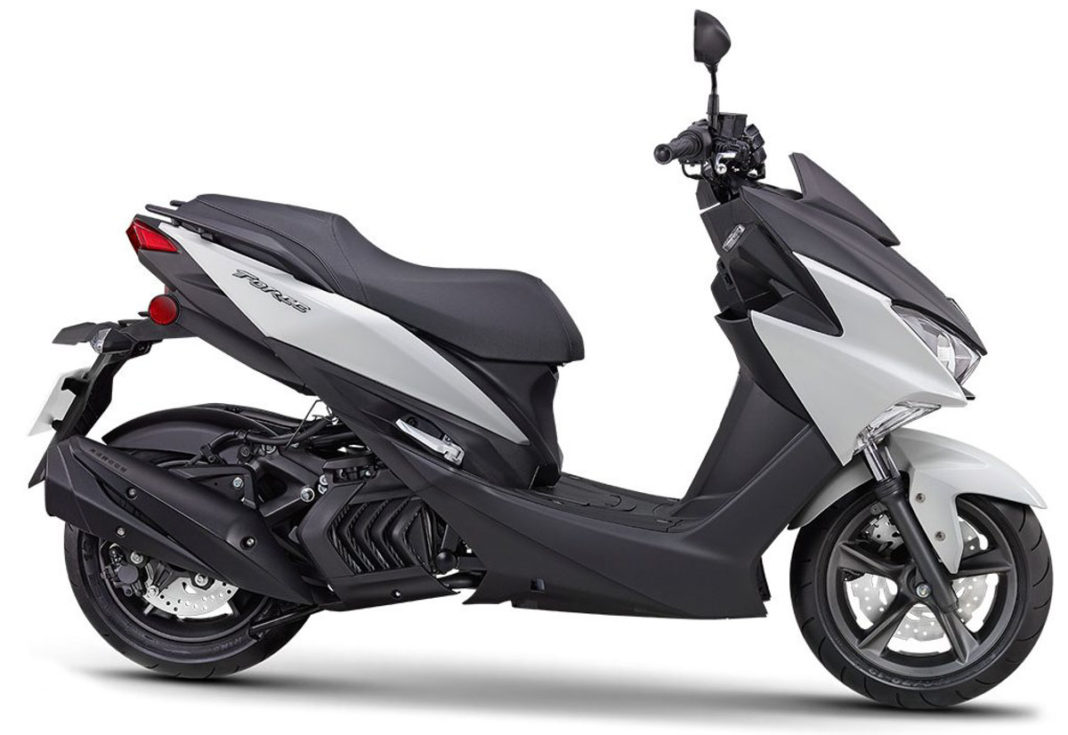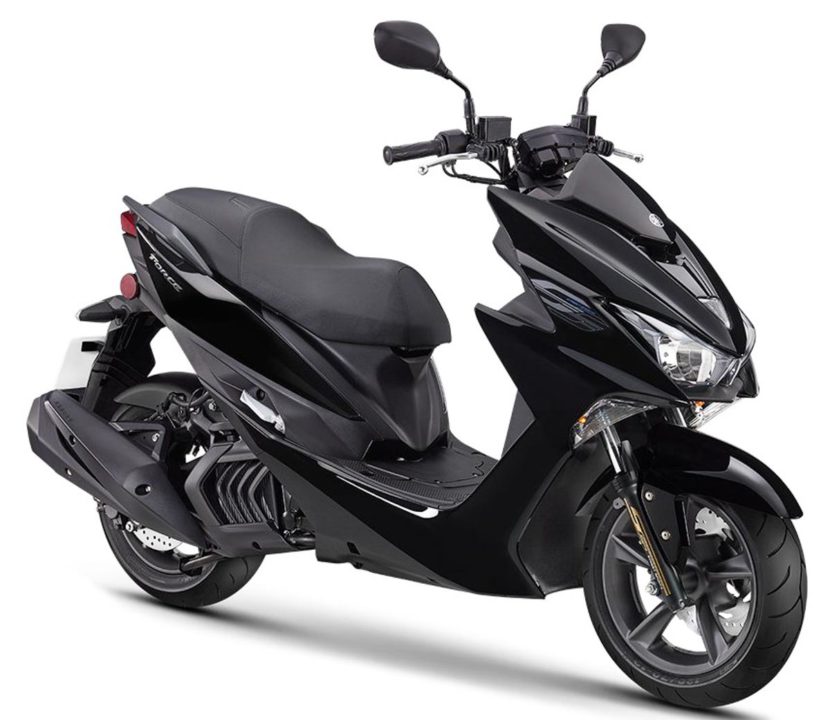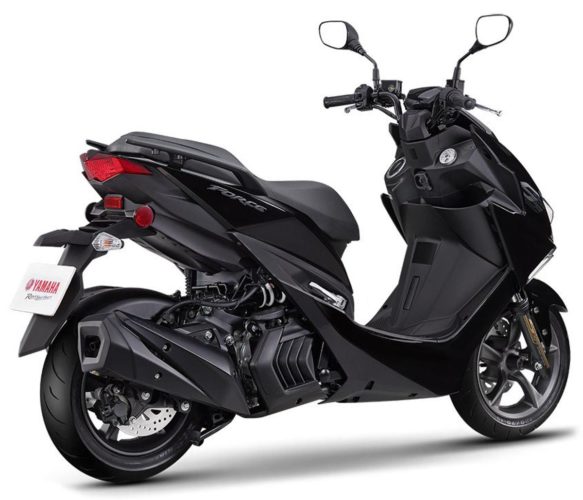
The scooter is powered by 155cc, liquid-cooled engine, which generates a 15.1 PS and 13.9 Nm of peak power and torque, respectively
Maxi-Scooters are quite popular in South Asian countries, like Taiwan, Indonesia, and the Philippines. Almost every major two-wheeler manufacturer operating in those markets offers at least one, including Yamaha as well. A few months back, Yamaha launched the 2020 Force 155 maxi-scooter in Taiwan, at a price of HKD 33,000 (equivalent to INR 3.34 lakh).
The Yamaha Force 155 is powered by a 155cc, liquid-cooled, single-cylinder engine, which generates a maximum power of 15.1 PS and a peak torque of 13.9 Nm. This motor comes paired to a CVT transmission, and the manufacturer claims a fuel efficiency of 35.8 kmpl, which is decent for a scooter in this segment.
The Force 155 has typical maxi-scooter styling, with a bulky front fairing, stepped single-piece seats with comfy cushioning, and a large footboard. Other than that, it also gets twin headlamps, telescopic front suspension, rear monoshock, split grab rails. Other than that, it gets 13-inch alloy wheels, with 120/70 and 130/70 tyres on the front and rear wheels, respectively.
The scooter also gets a fully-digital instrument cluster, which offers a tachometer, odometer, clock, trip-meter, fuel gauge, and oil change reminder. The braking duties are handled by disc brakes on both the wheels, 267mm at the front and 245mm at the rear. The Force 155 is offered in four colours – Gloss Obsidian Black, Matte White, Matte Light Grey, and Matte Dark Grey.
There is currently only one maxi-scooter available in the Indian market – the Suzuki Burgman Street 125. This will be the biggest competition to Force 155, if Yamaha indeed decides to launch it in our market. There have been rumours that Honda might also launch the Forza 300 (or Forza 350) in India soon.
| Yamaha Force 155 Specifications | |
| Engine Capacity | 155cc |
| Maximum Power | 15.1 PS @ 8,000 rpm |
| Peak Torque | 13.9 Nm @ 6,500 rpm |
| Transmission | CVT |
| Fuel Economy | 35.8 kmpl (claimed) |
For the Indian market, Yamaha will have to reduce the manufacturing costs in order to be successful. At the current equivalent price, Yamaha will struggle to find any takers in India. If the manufacturing is set up locally, the Japanese manufacturer might be able to bring the prices down, to around Rs. 1.2 lakh to 1.5 lakh (ex-showroom, New Delhi).











